| Shepherds of Christ Daily Writing |
 |
April 24, 2014
|
April 25th Holy Spirit
Novena |
The Novena Rosary
Mysteries |
We will be
painting the crucifix
in Florida this week.
Please pray for this.
Bible
Bash/Fatima Package for May
|
|
|
|
|
|
11" Fatima |
Your
choice of ONE |
Or Moses DVD |
8x10
picture of Our |
|
|
|
|
|
| Or David DVD | Or Esther DVD | Or Abraham DVD | Or Jacob DVD |
$50.00 plus postage
While supplies last
Call Rosie 1-888-211-3041
Package for the month of Mary and First Communion
|
|
 |
 |
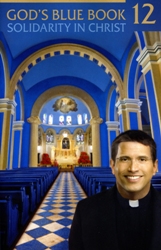 |
 |
|
The Song of
Bernadette DVD OR |
The Miracle of Our Lady of Fatima DVD |
11" Fatima |
Blue Book 12 |
8x10 and 4x6 |
plus CD of October 13, 1996 Rosary
$50 plus postage
while supplies last
Call 1-888-211-3041
Package for Pope John Paul II
Pope John Paul II will be canonized April 27th.
Here is a wonderful DVD about his life.
12" Statue of Sacred Heart of Jesus with glass
CD of Live Rosary from Blue Book 13 October 13, 1996 –
1st 13th - Fr. Carter leads this live rosary
Blue Book 12
Karol Movie
Pictures of Our Lady of Clearwater 8 x 10 and 4 x 6


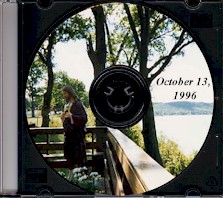

Hard copy of October 13, 1996 Rosary
We will include this special rosary with this offer.$100 plus postage
while supplies lastThis is a limited time offer.
These statues may become scarce in the near future.
Special First Communion Rosary with Image Center
in a gift box
white blue red
and an 8 x 10 picture of Our Lady of Clearwater
and a 4 x 6 picture of Our Lady of Clearwater
$10 plus postage
Original Image Rosary
8mm glass beads
in a matching gift box
$40 plus shipping
Given March 21, 2014
R. Pray for These Things
1) Pray for the priests, the Church and the world!
2) Pray for the spread of prayer chapters,
also for the spread of priests doing prayer chapters.
3) Pray for the spread of Blue Books.
4) People going to Florida and China.
5) Vocations to all 7 categories.
6) Pray for spread of Consecration and Rosary.
7) Pray for pope helping us.
8) Blue Book 13 cover; Blue Book 12, Blue Book 13 - all involved.
For our Publisher and all involved
9) All intentions on my list, Jerry's list.
10) Priests getting Fr. Joe's book.
11) Donors and members and their families.
12) Healing of the Family tree.
13) Dan & Melanie, Catherine & mom, Gary, Mary Jo,
Jim & statues, Fr. Ken, Monsignor, Tom & wife, Kerry.
14) All who asked us to pray for them.
15) All we promised to pray for.
16) Rita, John, Doris, Sheila, Jerry, Regina, Sanja,
Betty, Sophie, Rosie, Lisa, Eileen, Fr. Mike, Jeff,
Louie, 2 Dons, Mary Ellen, Fr. Joe, all priests helping us,
Ed, Jimmy, a special couple.
17) 2 babies and moms.
18) Funds and insurance.
19) Special intentions.
20) Jerry's garage.
21) Spread the Blood of Jesus on all of us here.
22) Consecrate all hearts.
23) Cast the devil out of all of us here and all in Movement.
April 24, 2014 - Thursday of Easter Week
R. Jesus was placed in the tomb and
He rose on the 3rd day –
I recall this scripture I used in
Sunday's message –
John 2: 19-22
Jesus answered, ‘Destroy this Temple, and in three days I will raise it up.’ The Jews replied, ‘It has taken forty-six years to build this Temple: are you going to raise it up again in three days?’ But he was speaking of the Temple that was his body, and when Jesus rose from the dead, his disciples remembered that he had said this, and they believed the scripture and what he had said.
R. I also recall what Fr. Carter said in
the Newsletter 1998 Mother at Our Side.
Excerpt from Priestly Newsletter 1998 - Issue 5
Three days later, they found him in the Temple, sitting among the doctors, listening to them, and asking them questions; and all those who heard him were astounded at his intelligence and his replies. They were overcome when they saw him, and his mother said to him, "My child, why have you done this to us? See how worried your father and I have been, looking for you." "Why were you looking for me?" he replied "Did you not know that I must be busy with my Father's affairs?" But they did not understand what he meant. (Lk 2:46-50).
The above scene describes how Mary and Joseph found Jesus in the temple after having been separated from him. Returning home after the Passover celebration, they finally realized Jesus was not with them, and returned to Jerusalem to search for him. The scene has various lessons for us concerning God's will.
The scene reminds us of the guiding principle of Jesus' life-loving conformity to His heavenly Father's will. In some way Jesus knew He was supposed to remain in the temple at this particular time although Mary and Joseph were returning home. His course of action was no different in this instance than it had been in the past and would be in the future. His Father's will was made manifest and he obeyed. His Father showed the way and he followed. The Father's way was always Jesus' way, all day, everyday, in all matters. As followers of Jesus, his guiding principle has to be ours also.
This event in Christ's life also demonstrates that conformity to God's will sometimes occasions hurt regarding loved ones. Jesus knew that his remaining behind would cause suffering for Mary and Joseph-we can well imagine their anxiety. Jesus was sorry this had to be. He certainly was not insensitive to the feelings of Mary and Joseph, yet he had to let it all happen. There can be similar situations in our own lives. Precisely because we are striving to seek out and do God's will, we know we are causing hurt to loved ones. Yet we know there is no other course of action, if we are to be open to God's designs and true to ourselves.
The finding of the child Jesus in the temple illustrates still a further point regarding conformity to God's will. Mary and Joseph knew that somehow it was God's will that Jesus remain in Jerusalem as they themselves headed back to Nazareth. Yet they did not comprehend why all this happened. They recognized God's will, but they did not understand it. Yet they accepted His will along with the pain it had occasioned in their lives. The application of this lesson to our own Christian lives is vividly manifest. Often there occurs a happening we do not understand. We realize that somehow this is God's will, at least His permissive will. Yet we do not understand, and our lack of comprehension is part of our pain.
It is obvious from all the above that conformity to God's will in love is the only way, although not always an easy way. At times one can be tempted to be resentful and even rebellious when confronted with the aspects of embracing God's will. Such resentment and rebellion, if consented to, becomes only a dead-end street, a path leading to bitterness and unhappiness. We know this. We know that the only sure guide we have in the quest for happiness is God's will. We know, despite what our feelings may tempt us to do, that the only way to true happiness is God's way. We know that God wants our happiness much more than we do ourselves. We know that if He permits suffering to cross our paths in doing His will, He likewise grants us the grace to encounter this pain properly and profitably as a step toward greater Christian holiness. We know, then, deep down at the center of our existence, that God's will is our happiness.
Excerpt from Priestly Newsletter September/October 1997
- Openness to God. "In the sixth month the angel Gabriel was sent by God to a town in Galilee called Nazareth, to a virgin betrothed to a man named Joseph, of the House of David; and the virgin's name was Mary. He went in and said to her, 'Rejoice, so highly favored! The Lord is with you.' She was deeply disturbed by these words and asked herself what this greeting could mean, but the angel said to her, 'Mary, do not be afraid; you have won God's favor. Listen! You are to conceive and bear a son, and you must name him Jesus. He will be great and will be called Son of the Most High. The Lord God will give him the throne of his ancestor David; he will rule over the house of Jacob forever and his reign will have no end.' Mary said to the angel, 'But how can this come about, since I am a virgin?' 'The Holy spirit will come upon you' the angel answered 'and the power of the Most High will cover you with its shadow. And so the child will be holy and will be called Son of God. Know this too: your kinswoman Elizabeth has, in her old age, herself conceived a son, and she whom people called barren is now in her sixth month, for nothing is impossible to God.' I am the handmaid of the Lord, said Mary 'let what you have said be done to me'. And the angel left her." (Lk 1:26-38).
God wants the best for us. His love is eager-eager to draw us ever closer to Himself. His love for us is a transforming love. As we surrender to it more and more, this love accomplishes our ongoing conversion. It thrusts us forward to become more deeply Christian. God's love for us contains the absolute capacity to make us happy, to make us fulfilled persons, to make us what in the depths of our beings we really know we should be and want to be.
We can put obstacles in the way of God's transforming designs. We can say no to this love. We can refuse to be open to God's tender, loving touch. We can engage in a process of self-enclosedness. We can determine to map out our own path to happiness, forgetting that plans for happiness which exclude God are ultimately plans for experiencing frustration and emptiness.
At other times it is not so much selfishness which leads us to say no to God, it is rather fear. We hear God's voice calling us higher. We hear His voice asking something which seems very difficult. We hear His voice asking something we had not at all expected. Yes, we hear all this-and we draw back. We draw back because we are afraid. We refuse God because our fear focuses our attention on what we are rather than on what God is. We look too much at our own weakness, rather than at God's power which can transform our inadequacy into a mighty strength.
In all this Mary offers an example. Selfishness was totally foreign to her. She did not belong to herself. She belonged to God. She was not closed in upon herself. She was completely open to God. When God spoke, she listened. When God pointed the way, she followed. She realized that life is not a process a person masters by carefully mapping out one's own self-conceived plans of conquest, but a mystery to be gradually experienced by being open to God's personal and loving guidance.
Selfishness, then, did not close Mary off from God's call. Neither did fear. God asked her to assume a tremendous responsibility. He asked her to be the Mother of Jesus. Mary did not engage in a process of false humility and say that such a great role was above her. She did not say that she did not have the proper qualifications for this awesome mission. Briefly, she did not waste time looking at herself, making pleas that she was not worthy, telling the angel he had better go look for someone else. No, Mary did not look at herself. Her gaze was absorbed in God. She fully realized that whatever God asked of her, His grace would accomplish. She fully realized that although she herself had to cooperate, this work was much more God's than hers.
Mary's words, then, truly sum up what is the authentic Christian response at any point of life, in any kind of situation: "I am the handmaid of the Lord," said Mary, "let what you have said be done to me".- People are Looking at Us. "You are the light of the world. A city built on a hill-top cannot be hidden. No one lights a lamp to put it under a tub; they put it on the lamp-stand where it shines for everyone in the house. In the same way your light must shine in the sight of men, so that, seeing your good works, they may give the praise to your Father in heaven" (Mt 5:14-16).
Jesus taught by word and action. He talked to huge crowds, to small groups, to various individuals. He talked about love and friendship, about joy and suffering, about life and death. He had a message to spread, His Father's message, and He did not miss His opportunities. It was not enough for Him merely to talk about His Father's message. He was also constantly teaching by the total event of His life, death and resurrection. Not only His words, but also His actions spoke out loud and clear. He not only talked about the love we should have for one another. He incarnated this teaching in the laying down of His own life for the salvation of all. His words spoke eloquently of brotherly love. So also did His bloody and bruised body nailed to a cross. His words sounded so convincing. The way He went about living could also pierce the hardest heart.
Jesus invites us to assist Him in the continuation of His teaching mission. The method of procedure remains the same; we, too, like Jesus before us, are to teach by both word and action. The opportunities for teaching by word are more numerous than we might expect. For it is not only bishops and priests and teachers of religious studies who teach by word. Parents, as they rear their children, have numerous opportunities to teach Jesus' message. Friends talk about all sorts of things. If one is sincerely Christian, his or her friend will eventually know.
The opportunities to teach about Jesus by the way we act are even more numerous than are the occasions for variously speaking about the message of Jesus. People are looking at us. We cannot long hide the life-vision which thrusts us forward, which motivates so much of what we do. If we live according to the pleasure principle, this becomes evident. If we live according to the money principle, this also becomes manifest. If we are close followers and friends of Jesus, this too becomes clear to people. They will know by the way we work and play, by our attitude towards life and death, by our refusing to become bitter despite even great suffering, by the way we treat others, especially those who are poor, or ridiculed, or discriminated against, or passed over as unimportant and of little worth. If we are deeply Christian, Christ's way of thinking and doing will necessarily affect our own way of thinking and doing. We are called to project Jesus and His message through our own humanities. Either we do, or we don't. Either we seize the numerous and daily opportunities for helping to preach Jesus by the way we live, or we do not. Either we respond to Jesus' invitation to be a light for the world, or we do not. This invitation goes out to all, but to priests in a special way. Jesus, through Holy Orders, has given Himself to the priest in a most special way. If the priest, realizing Jesus' precious love for him as this unique priest-companion, surrenders to Christ, this gives Him special joy. For the priest, because of his special union with Jesus, can be a light to the world in a most extraordinary way.
R. THY WILL BE DONE ON
EARTH AS IT
IS IN HEAVEN
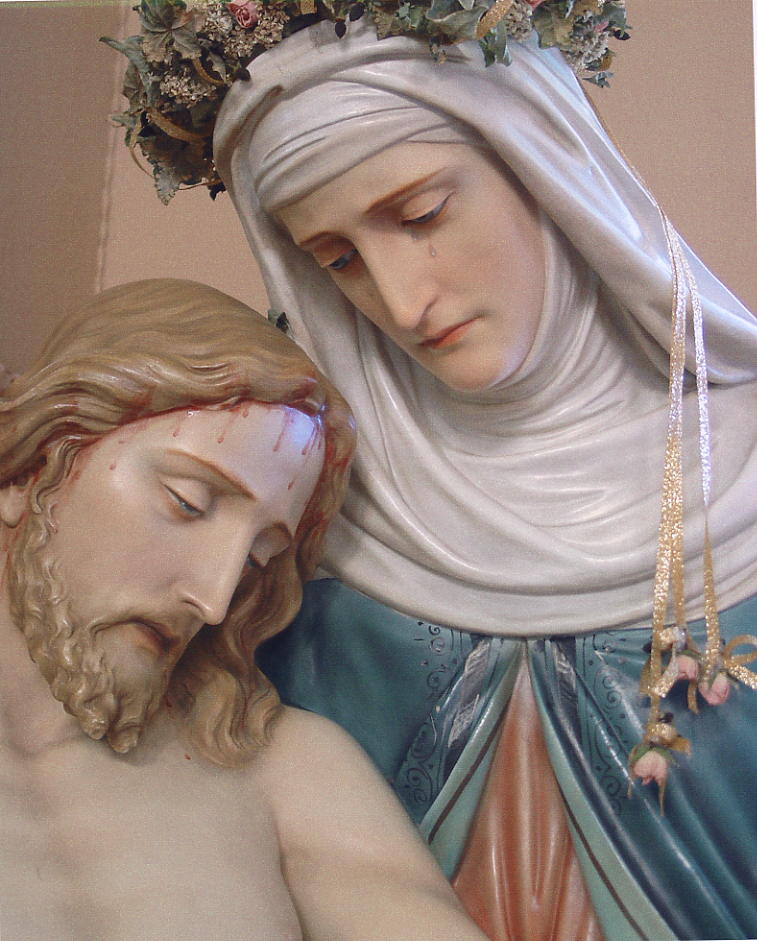




Excerpt from Priestly Newsletter September/October 1996
- The more love matures, the more it concentrates on the present. Love welcomes each day with a fresh joy and a renewed gratitude to God for the opportunity to once again be and become for Him and others. Love realizes that it does not fully possess the past or the future-it can only fully grasp the present, and it loathes to waste any of the preciousness which "the now" offers.
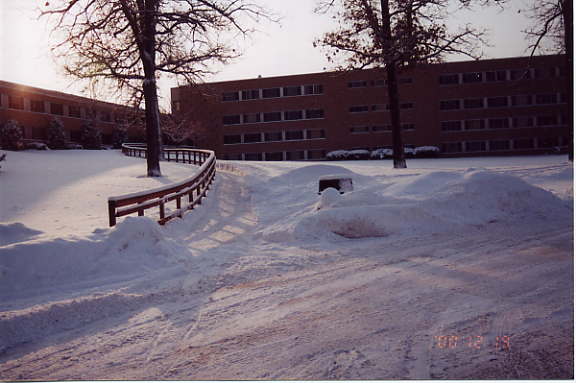
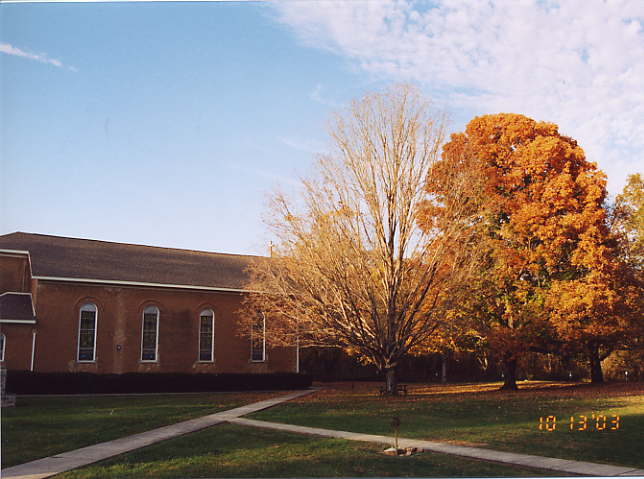
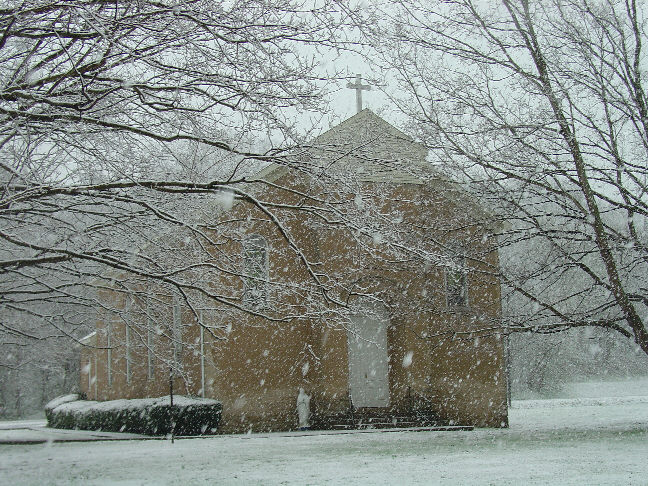
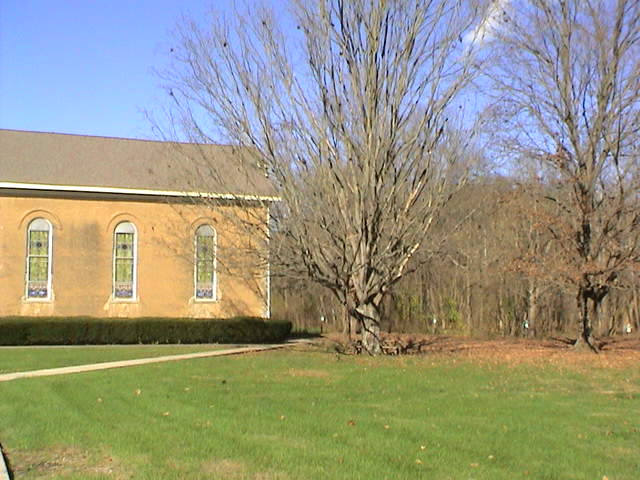
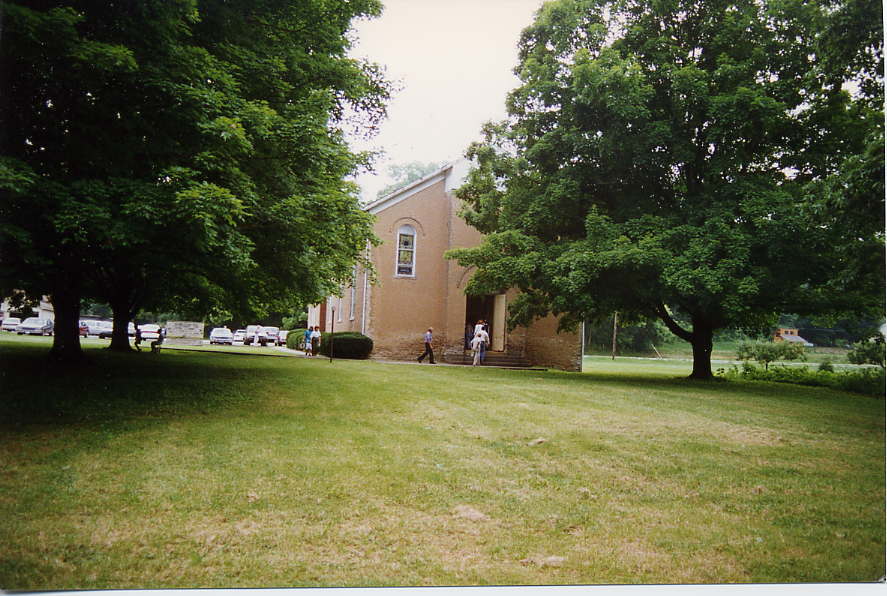
- Love is gentle, love is tender. Love is sensitive to the gentleness in nature. It is moved by the softness of the freshly fallen snow, the coolness of an autumn breeze tenderly stroking the brow, and the softness of the grass in May-time greenness. Much more important, love is sensitive to the need for gentleness, for tenderness, in human affairs. Consequently, love gently comforts the grief-stricken parents of a child so tragically and suddenly snatched away in death. Love gently encourages those to whom life seems hopeless. Love sensitively tends to the needs of those who are so often and so easily forgotten. Yes, the gentleness of love manifests itself in these and in many other ways, and, in so doing, imitates the gentleness, the tenderness of Jesus Himself: "Jerusalem, Jerusalem, you that kill the prophets and stone those who are sent to you! How often have I longed to gather your children, as a hen gathers her chicks under her wings, and you refused!" (Mat 23:37)
The fact that love is gentle does not mean that it is not strong. It is precisely this, and the blend between its tenderness and its strength constitutes one of love's most attractive traits. Love is strong in many ways. It is not discouraged by the evil in the world that threatens to thwart the accomplishments of love's goals. It realizes that the strength of goodness is mightier than the force of evil and that ultimately love wins out. Love is also strong in bearing with the temporary failures that are experienced in the pursuit of its purpose. Although love may be disappointed, it nevertheless realizes that the only failure it cannot conquer would be love's refusal-love's failure to go on loving-and true love will never quit. Love is strong in its willingness to take the necessary means to achieve its goals, even though this might entail great personal cost or cause misunderstanding, or even cause pain to those who are the recipients of this love.
- Love is secure. A person who properly loves is in touch with one's true self and realizes that he or she is tremendously loved by God. Such a person feels secure in the exercise of love towards others. He or she feels secure enough to extend love towards others in various ways, even when little or no love is returned.
- Closely allied to love's feeling secure is love's intuition in realizing the evils of possessiveness. Love does not try to possess the person one loves, but leaves the other free. In fact, authentic love for the other makes the other more free and helps the other to grow in all ways, including growth along the paths of real freedom. The one who loves authentically leaves the other free to grow in all sorts of ways, for example, to relate to other people and to undertake new things, activities which might well make the loved one less accessible.
- Love is reconciliatory and integrative. Loves hates divisiveness. It knows the difference between diversity and divisiveness. It knows that healthy diversity reflects the varied richness of human existence and is something to be desired. It knows, too, that divisiveness is the sworn enemy of community. Divisiveness perniciously eats away at those bonds of love and union that are meant to unite the members of God's human family. Love, consequently, works to promote the integrative process which unites us and human events according to God's holistic plan, a plan in which the numerous and richly diversified parts become increasingly beautiful the more they contribute to the health and functioning of the whole.
- Love is trusting. Regarding a person's relationship with God, this attitude grows in proportion to the atmosphere of love. As one grows in the realization of how much God loves him or her, and responds with a love of his or her own, trust in God matures and is a dominant facet of one's daily existence. A serenity of spirit becomes more obvious as the person grows in the awareness of both how much God cares and how supportive His loving embrace is, come what may.
This attitude of trust also characterizes one's relationships with others. One who is exercising true love is not naive or oblivious to the fact that one can be needlessly hurt by this: that one's trust can be betrayed. On the contrary, one who loves realizes that there is certainly an evil side to human nature, but, nevertheless, prefers to concentrate on the basic goodness of the human heart. This positive focus allows a person to trust that people not only will frequently act according to this goodness, but, as a matter of fact, will actually be encouraged to do so when they themselves are the recipients of a true and sincere love.
- Love is affirming. By the very fact that one loves another, the other is encouraged to be and to become according to his or her uniqueness. Being loved enhances a person's sense of worthwhileness. A person who is loved is encouraged to develop his or her uniqueness, to feel more at home with oneself, and to accomplish further the special mission in life that only he or she can fulfill.
- Love is patient. Love realizes that, for the most part, the growth of God's kingdom occurs at a very gradual pace. Sometimes this growth process seems exceedingly slow, and a person is tempted to wonder if the efforts of love are actually producing any effects. Patience conquers this temptation, however, and enables love's work to continue. Patience consequently helps prevent the waste of talent in the work of the kingdom. It seems that certain talented people have never realized their potential in promoting Christ's cause precisely because they were not patient enough with others and themselves. Patience is a virtue that is not much discussed, but is nevertheless extremely necessary.
- Love is not proud, is not egotistical. Love is interested, of course, in the self and the good of the self. One who loves authentically, however, realizes that the love of one's true self is based on the awareness that one has been created and redeemed by God's love, that one has been endowed with various gifts by the Creator, and that these gifts are to be exercised in the loving service of God and others. Love, then, does not become selfishly proud in its accomplishments. Rather, love realizes that God is the ultimate source of personal accomplishments, that one can achieve only what God helps a person to accomplish. Love is very much aware of Jesus' words that without Him we can do nothing.
- Love is both universal and specific. Love is universal in that it excludes no one. For example, love includes all members of the human family in its prayer. Love is very much aware, however, that one can say he or she loves everybody, but be sadly lacking when it comes to manifesting love in various ways according to the concrete setting of every day. True love, then, does not shy away from the painful aspects of loving specific individuals in definite, concrete circumstances. Admittedly, such a service of love can be difficult, demanding, and unattractive in certain ways. Personality flaws in others, or particular personalities that are not attractive to the one who is trying to be of help, or indifference, or even hostility on the part of those one strives to serve-these and other realities are a true test of a person's willingness to concretely implement one's avowal that one does indeed love his or her neighbor as the Lord commands, even when it is difficult to do so.
- The Christian's fundamental relationship is his or her union with God in Christ. The more one realizes how much God loves him or her as this unique individual, and the more the person responds to this love, the greater the happiness. If this basic love relationship with God in Christ is alive and healthy, everything else in life falls into place. There may be problems, at times very severe problems. There may be great suffering. But all of this becomes bearable for the one who feels reasonably secure in God's love. A poll has been taken which finds that unhappiness is about five times greater among non-religious people than among people who would be classified as being very religious.
The saints' progress in holiness was accompanied by their conviction that God loved them mightily. We also have to allow the realization of how much God loves us to accomplish our ongoing transformation in Christ. Since it's true that God loves each of us so uniquely, so intimately, why don't we take greater effort to arrive at the existential assent to this consoling truth? By an existential assent we mean one which reaches deep down, an assent which permeates our being so thoroughly that it erases and makes repugnant the thought of compromising for a life of spiritual mediocrity. At times we foolishly shy away from God's love. We foolishly think that to give ourselves ever more to this love, to allow it to possess us more radically, will mean that our lives will be too much hemmed in, too much cut off from the pursuit of our self-designed ideas of happiness. If we succumb to such a temptation, we become similar to the prodigal son who thought happiness existed elsewhere than in his father's house. His pursuit of this false happiness ultimately ended up in his willingness to eat the food given to pigs. We ourselves are not totally blameless. To the extent we refuse to be more possessed by God's love, and choose to be directed by it, to that degree we also are willing to settle for food which is unworthy, food which can never satisfy our true cravings.
- Love is contemplative. It realizes it must sustain and develop a contemplative awareness of reality if it is to love properly. To relate in love to reality as we should means that first we must view reality according to its true nature, that is, we must see things according to our faith vision. Jesus has left us with the proper view of God and creation. Jesus has told us how to relate to God and His creation, how to love. This faith vision must be consistently actualized through a contemplative or prayerful awareness of the people, events, and circumstances that are part of our daily lives. If we fail, for example, to see people as they really are in their core existence, namely, as created and redeemed by God's love, and instead allow ourselves to be absorbed by more superficial aspects of their persons, then we will not love them as we should.
Love seeks, therefore, a certain degree of solitude in order to nourish this contemplative attitude. A person cannot hope to exercise a contemplative awareness throughout the myriad and often complex happenings of daily existence unless there are periods of withdrawal during which one can drink more deeply of the wisdom which contemplation offers. A person must conquer the temptation that deceitfully suggests that the seeking of solitude is a selfish desire to flee the pain of human encounter. Authentic solitude is never selfish; rather, it is a renewed opportunity for refurbishing both one's contemplative vision and one's determination to love more maturely according to this perspective.
- Love knows what love really is, and this awareness is a result of love's contemplative thrust. One of the truths that emanates from the act of contemplation is the realization of what actually constitutes true love. This is no small accomplishment, for, despite the numberless volumes that have been written about love, one can still have only a blurred idea of what it really is. Giving love is the gift of self to promote the authentic good of the other loved. Being loved is receiving the other's gift of self as a help in achieving one's real good.
The manner in which the gift of self is made is commensurate with the type of relationship. A doctor gives himself or herself to one's spouse in one way, to one's children in another, to one's patients in yet another way, and to his or her friends in a way that is still further differentiated. Whatever way the gift of self is made, however, it has the same basic goal in mind, namely, to promote the real good of the other. Love realizes that it is not always easy to discern what really promotes the true good of the other. However, despite this difficulty, love is aware of its true identity. Love, in short, knows what love really is.
- When we experience love-hurt in abundant measure, we can be tempted to think that it may be better not to love at all. But a moment's mature reflection tells us otherwise. We are made for love. We are to love God and human persons. The only way we can grow is to love. Despite the pain, we have to love if we want to grow, if we want to be happy, if we want to be what God destines us to be. At times, and especially when the love-pain is particularly keen, we should look at the example Jesus has left us. He came upon the earth to love. He did not flinch, He did not renege. He did not quit loving when it was painful to do so-even when it became agonizingly painful to do so. This is the poignant beauty of His life.
- "After saying this, what can we add? With God on our side who can be against us? Since God did not spare His own Son, but gave Him up to benefit us all, we may be certain, after such a gift, that He will not refuse anything He can give. Could anyone accuse those that God has chosen? When God acquits, could anyone condemn? Could Christ Jesus? No! He not only died for us-He rose from the dead, and there at God's right hand He stands and pleads for us.
"Nothing therefore can come between us and the love of Christ, even if we are troubled or worried, or being persecuted, or lacking food or clothes, or being threatened or even attacked'
"For I am certain of this: neither death nor life, no angel, no prince, nothing that exists, nothing still to come, not any power, or height or depth, nor any created thing, can ever come between us and the love of God made visible in Christ Jesus Our Lord." (Rom 8:31-39)
Special Sale Statues with image glass
15" Pilgrim Virgin Fatima - $85
12" Our Lady of Fatima - $75
plus shipping
while supplies lastCall Regina 1-727-776-2763
Call Rosie 888-211-3041
In Spanish with the Imprimatur
Also we are ready to print
5000 copies of the
Parents and Children's Rosary Book
in SPANISH.
Can you help with a donation?
Give the gift that counts.
Give to your priests Fr. Carter's Books plus postage.
Tell My People $5.00
Response to God's Love $8.00
Response in Christ $8.00
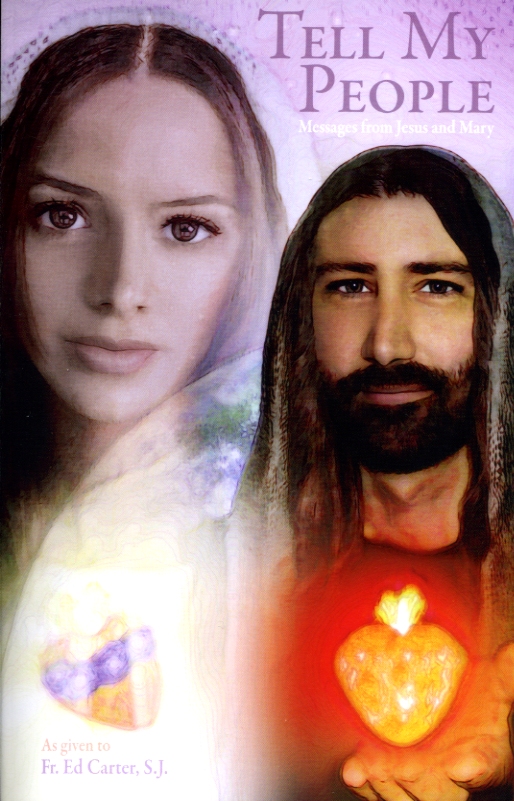
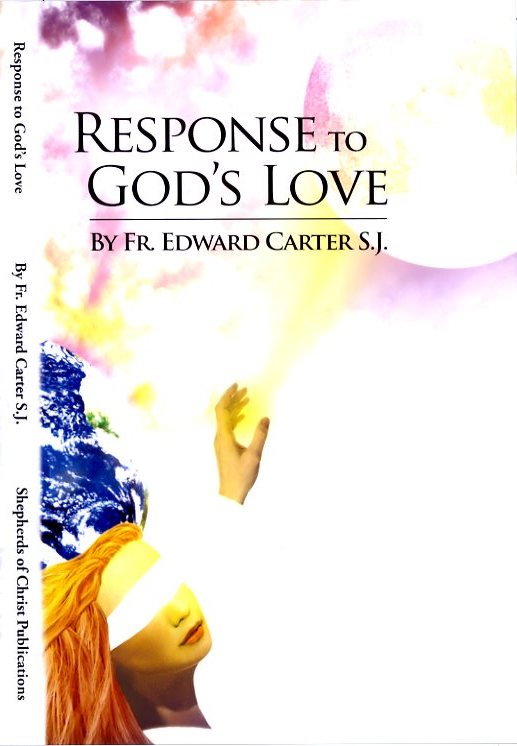
God's Blue Books 4, 5, 6A, 6B, 6C, 7, 8, 9, 10
$4.00 each plus postage
Blue Book 4
Blue Book 5
Blue Book 6A
Blue Book 6B
Blue Book 6C
Blue Book 7
Blue Book 8
Blue Book 9
Blue Book 10
Old Mass Books with the Imprimatur
$2.00 plus postage
New Mass Book with Imprimatur
$8.00 plus postage
New Parents & Children's Book with the Imprimatur
$8.00 plus postage
Fr. Joe's Cycle A - Steadfast to the Sun - Starts in Advent
$5.00 plus postage
Give the gift that keeps on giving!
Give to your priest.
Fr. Carter's Priestly Newsletters Book II
$6.00 plus postage
Special sale statue with glass
27" Statue of Our Lady of Fatima
$175 plus postage
Get a canvas print of Mary's image
with a sliver of glass and a little
bottle of Jesus and Mary water.
The glass will be fixed behind the
back of the picture.
$200.00 plus postage
Dan called and gave the report to me, when I hung up I saw this rainbow and took a picture for him.